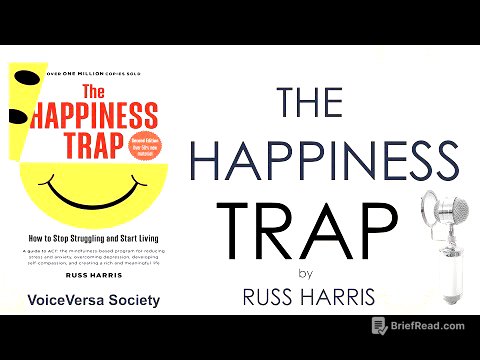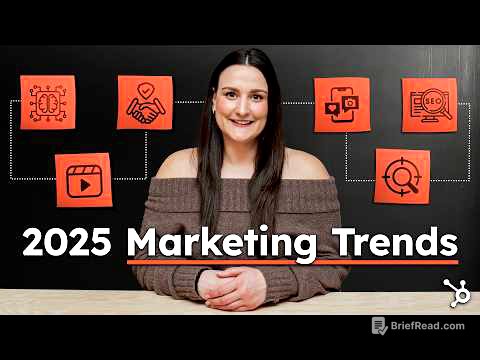TLDR;
This video introduces the basics of digital marketing and e-commerce, explaining their definitions, how they create value for businesses, and the roles and responsibilities of specialists in these fields. It also discusses essential skills for success, such as curiosity, analytical thinking, and storytelling, and explores career paths, including in-house and agency positions.
- E-commerce involves buying and selling goods and services online, while digital marketing uses online channels to reach and convert consumers into customers.
- Digital marketing offers cost-effectiveness, broader reach, faster results, and personalized customer relationships compared to traditional marketing.
- Key skills for digital marketing and e-commerce include curiosity, analytical thinking, and storytelling.
Introduction [0:00]
The video introduces the concepts of e-commerce and digital marketing, highlighting their importance in today's business world. It mentions the first online sale in 1994 and how e-commerce has since grown into a global, multibillion-dollar industry. The video sets the stage for exploring how these fields create value for businesses.
What are digital marketing and e-commerce? [0:27]
E-commerce is defined as the buying and selling of goods and services online, encompassing physical products, digital products, services, and software. The rise of e-commerce has transformed business by removing the need for a physical storefront, leading to increased competition. Digital marketing is the practice of reaching consumers online through various digital channels like websites, search engines, email, and social media, with the goal of converting them into customers. Digital marketing helps businesses build trust, inspire loyalty, and better serve their customers. It is more cost-effective, has a broader reach, produces faster results, and allows for personalized customer relationships compared to traditional marketing.
What do digital marketing and e-commerce specialists do? [4:56]
The digital marketing and e-commerce industry is complex, with many moving parts. Specialists in this field may focus on strategizing and executing marketing campaigns, website management, product development, customer service, and order fulfillment. Depending on their interests and strengths, they might work on marketing emails, blog articles, image assets, website layouts, e-commerce store management, pricing strategies, or data analysis. Common skills include audience research, content planning and creation, product description updates, and data analysis. Their goals range from engaging potential customers online to driving sales and creating excellent customer experiences.
Launching your digital marketing or e-commerce career [13:00]
Digital marketing and e-commerce are rapidly growing industries with numerous job opportunities across various sectors. Candidates should have a broad knowledge of the fundamentals and a deep understanding of specific areas. To improve job prospects, one can explore job descriptions, identify relevant skills, and shape their public persona as a digital marketing or e-commerce specialist by building a personal brand through social media or a personal website. Essential skills for success include curiosity, an analytical mindset, and storytelling. Curiosity involves asking questions and staying updated with industry trends. An analytical mindset helps in collecting and organizing information to identify patterns and solve problems. Storytelling is used to communicate insights effectively through engaging presentations and reports.
Agency roles vs. in-house roles [17:07]
There are two main career paths in digital marketing and e-commerce: in-house and agency positions. In-house roles involve working for a single company to market their products, allowing for deep knowledge and expertise in a specific industry. Agency roles involve partnering with multiple companies, offering variety and exposure to different projects and industries. In-house positions provide stability and deep knowledge, while agency positions offer flexibility and broad knowledge. The choice depends on individual career preferences, with the program preparing individuals for both paths.









